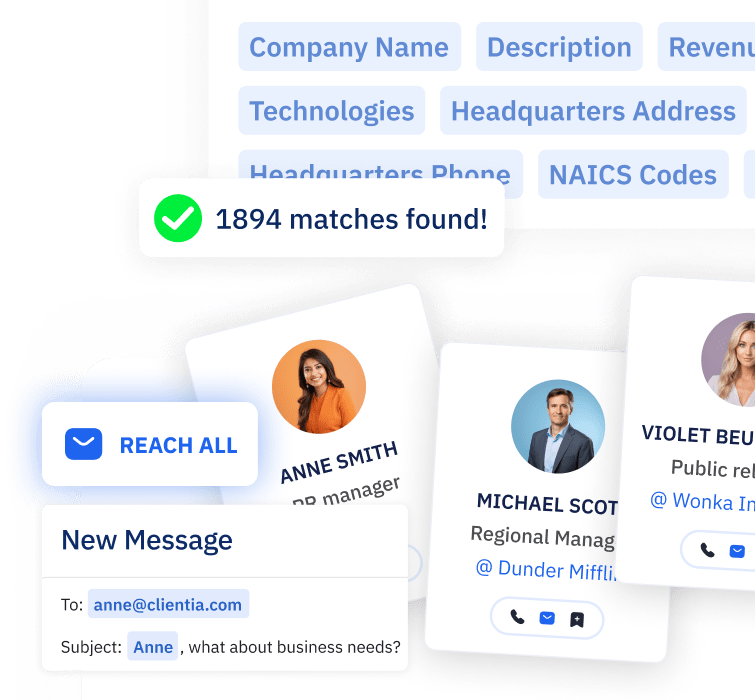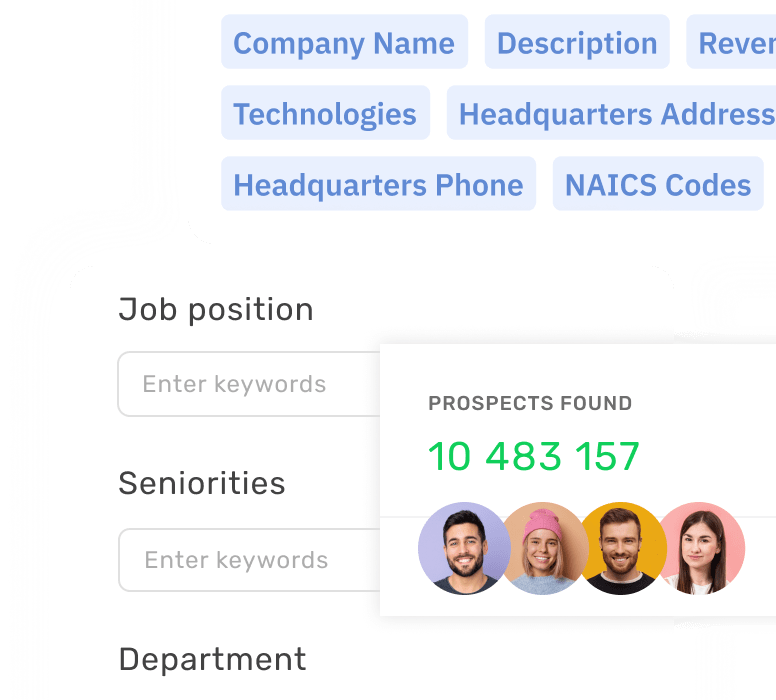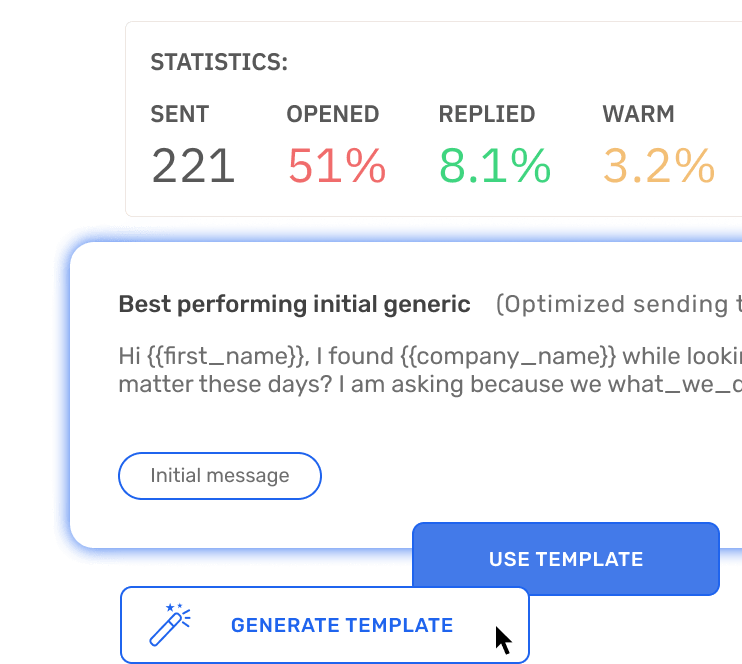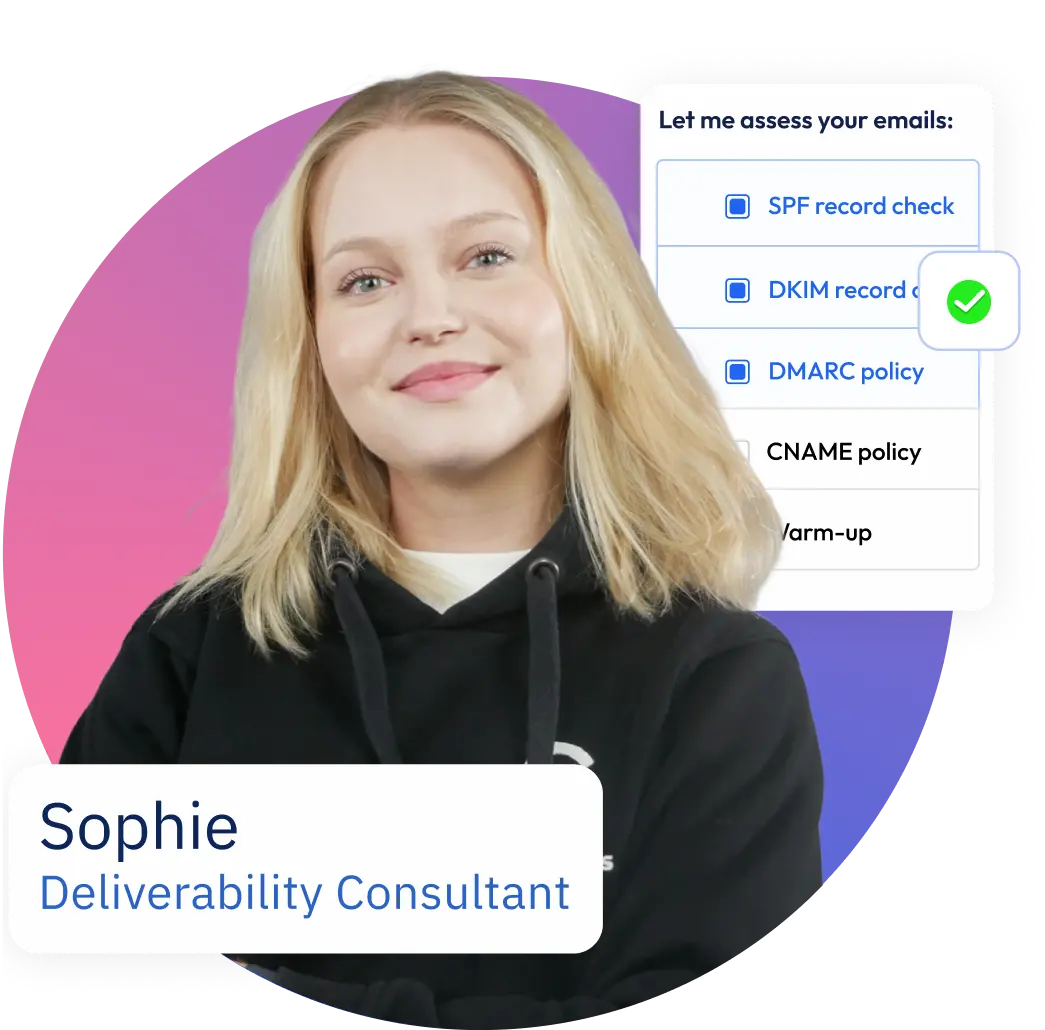Artificial intelligence (AI) is no longer just a buzzword in the world of sales prospecting; it’s a game-changer that’s reshaping the landscape. The advent of AI technologies has revolutionized the way sales teams approach prospecting, providing unprecedented levels of efficiency and insight. In this introductory section, we’ll explore how AI has converged with traditional sales methodologies to create a potent combination that drives results.
According to a report by HubSpot, 68% of sales professionals predict that by 2024, most of the software they use will have built-in AI capabilities, demonstrating the growing integration of AI in sales processes.
Source: hubspot.com
Sales prospecting, at its core, is about identifying potential customers and initiating the sales process. But with the integration of AI, sales teams can now leverage advanced algorithms and data analytics to not only identify but also engage with leads more effectively. This leads to a higher conversion rate and a more streamlined sales funnel, empowering organizations to focus their resources where they matter most.
To understand how AI transforms traditional methods, read more about lead qualification techniques.
Key Takeaways
- AI transforms sales prospecting by automating tasks, providing insights, and personalizing interactions, leading to higher efficiency and conversion rates.
- Personalized engagements, powered by AI, resonate more effectively with clients, boosting sales prospects with tailored messaging and responses.
- Sales content benefits from AI through improved emotional intelligence, contextually relevant industry jargon, and dynamic call-to-action prompts.
- AI-generated sales prompts support reps with data-backed insights throughout the sales process, enhancing communication efficiency and effectiveness.
- Benefits of AI in sales include accurate lead scoring, automated data management, deeper customer insights, improved communication, and continuous learning from data.
- Sales strategies leveraging AI can utilize segmentation, predictive analytics, personalization engines, forecasting, and chatbots for more precision and success.
- AI helps in pinpointing optimal prospects, determining the best timing for engagement, and selecting the most effective channels, thus refining the sales approach.
- AI provides turbocharged insights into market trends, consumer behavior, and sales cycle dynamics, enabling evidence-based decision-making.
- As a round-the-clock assistant, AI aids sales reps with task reminders, instant data retrieval, and workflow automation.
- Using AI in sales targets leads with precision, optimizing marketing spend, and focusing on leads likely to convert through predictive analytics and machine learning.
- Predictive forecasting uses AI to provide foresight in sales prospecting, allowing teams to strategically plan engagements and deal closings.
- Simple AI applications in customer discovery include monitoring social media, analyzing public sentiment, and employing chatbots for initial client feedback.
- AI greatly enhances sales presentations by offering real-time analytics and feedback, allowing for the adjustment of pitches to increase engagement and success.
- The speed of data analysis and decision-making in sales is enhanced by AI, which quickly processes complex data sets for actionable insights.
- An AI-powered sales strategy integrates AI-driven tools for benchmarking, tracking, and strategic pivots, leading to an agile and results-driven sales approach.
- Autonomous AI-powered sales representatives can handle routine tasks and nurture leads, potentially redefining the sales workforce.
- AI sales agents streamline prospecting and qualification, improving efficiency and ensuring leads are universally assessed and managed.
- AI boosts sales performance by identifying effective tactics, optimizing communication channels and timing, and offering personalized coaching to reps.
- Relationship management is augmented by AI’s analysis of communication and customer satisfaction metrics for proactive actions and improved customer loyalty.
- AI is a key asset for sales performance optimization, identifying bottlenecks, personalizing buyer journeys, and providing real-time performance feedback.
- Challenges in employing AI in sales include data privacy and quality issues as well as aligning AI decisions with business goals.
Seek, pick, and reach
Connect with your potential customers
- 180m+ contacts
- Advanced filtering
- Multichannel sequences
- CRM integrations
Understanding Personalization in AI for Sales Prospecting
Personalization is the cornerstone of successful sales prospecting. Tailored interactions resonate more with potential clients, making them feel understood and valued. AI amplifies the ability to personalize at scale, analyzing customer data to offer individualized experiences that were previously unattainable.
A significant 61% of sales professionals agree that AI can make prospecting more personalized, indicating the technology’s capability to tailor interactions based on individual customer data.
Source: Hubspot.com
By employing AI-driven tools, businesses can now customize messaging, timing, and content according to the unique needs and behaviors of each prospect. This level of personalization not only enhances the prospect’s experience but also significantly boosts conversion rates, fostering strong customer relationships from the very first interaction.
Writing Effective Prospect Outreach Content with AI
Diving deeper into outreach, crafting the perfect message is critical in capturing the prospect’s attention. AI doesn’t just streamline this process—it elevates it. With natural language processing (NLP) and machine learning, AI can help write content that’s not only grammatically correct but also emotionally intelligent.
leave no lead unexplored
Every potential client within reach
- 180m+ contacts
- CRM integrations
- 23 Prospect filters
- 15 Company filters
Imagine outreach content that adapts to the prospect’s industry jargon, addresses their pain points, and invokes a call-to-action that feels organic and irresistible. That’s the power of AI in writing effective prospect outreach content, ensuring that each message hits the mark with precision.
| Feature | Benefit |
| Emotional Intelligence | Appeals to the prospect’s emotions, improving response rates. |
| Industry Jargon | Uses relevant terms, creating familiarity and trust. |
| Adaptive Call-to-Action | Encourages higher engagement from prospects. |
Explore strategies on how to write a cold email campagin that drive results.
AI-Generated Sales Prompts and Their Applications
Sales prompts generated by AI are invaluable in guiding sales reps through interactions, offering suggestions and insights that are backed by a wealth of data. AI can recommend questions, follow-up actions, and even conversation starters that are most likely to resonate with a particular prospect.
Salesforce’s research indicates that 82% of sales professionals use generative AI for basic content creation, with 74% applying it to analyze market data and 71% to automate personalized sales communications.
Source: Salesforce.com
These prompts can be used across various stages of the sales cycle, from first contact to closing the deal. With AI’s assistance, sales teams are equipped with a toolkit that fosters confidence and effectiveness in every communication.
Discover more about successful sales prospecting techniques.
Key Benefits of AI in Sales
A Harvard Business Review study revealed that companies employing AI in sales saw more than a 50% increase in leads, a 60-70% reduction in call time, and a 40-60% reduction in costs.
Source: businessdit.com
Integrating AI into the sales process brings a multitude of benefits that directly impact the bottom line. Here are some of the key ways in which AI is beneficial to sales:
- Accurate Lead Scoring: AI algorithms can predict the likelihood of a prospect converting, allowing sales teams to prioritize high-potential leads.
- Automated Data Entry: AI tools can automatically capture and update customer data, reducing manual errors and freeing up time for sales reps.
- Enhanced Customer Insights: With AI’s data processing capabilities, salespeople gain a deeper understanding of customer needs and behaviors.
- Effective Communication: AI-powered chatbots and virtual assistants facilitate timely and relevant interactions with prospects.
- Continuous Learning: AI systems continuously learn from past interactions and outcomes, refining strategies for future sales efforts.
Here is an example of how big performance increase you may get if you introduce AI in you sales prospecting process.
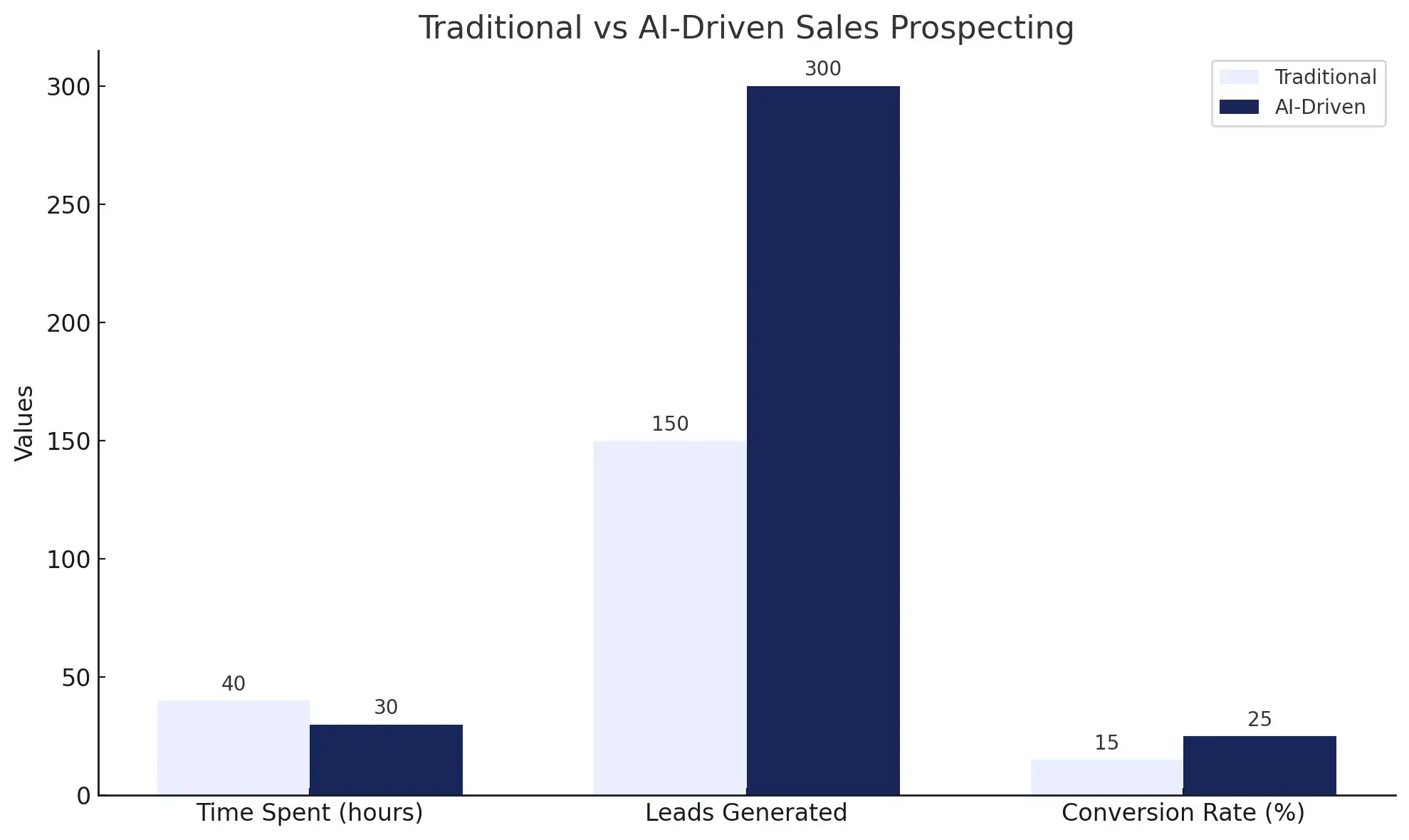
| Benefit | Application |
| Accurate Lead Scoring | Prioritizing efforts on high-potential prospects. |
| Automated Data Entry | Saving time and reducing errors. |
| Enhanced Customer Insights | Offering more customized solutions. |
| Effective Communication | Improving engagement and responsiveness. |
| Continuous Learning | Adapting and improving strategies over time. |
For more on enhancing sales performance, read about best practices for sales reps.
Five Ways to Utilize AI in Sales
Incorporating AI into your sales strategy can be done in numerous ways. Here are five practical approaches:
- Segmentation: Use AI to segment prospects based on their behaviors, preferences, and purchase history.
- Predictive Analytics: Deploy AI for forecasting sales trends and identifying markets ripe for expansion.
- Personalization Engines: Utilize AI to create personalized product recommendations or custom content for prospects.
- Sales Forecasting: Apply AI to accurately predict future sales volumes, aiding in strategic planning.
- Chatbots for Lead Qualification: Implement AI-driven chatbots to qualify leads, thereby streamlining the sales funnel.
These strategies highlight the versatility and power of AI in enhancing various aspects of the sales process.
| Way to Utilize AI | Description |
| Segmentation | Categorizes prospects for targeted marketing. |
| Predictive Analytics | Forecasts sales and identifies new opportunities. |
| Personalization Engines | Offers tailored recommendations to clients. |
| Sales Forecasting | Predicts sales volumes for better planning. |
| Chatbots for Lead Qualification | Qualifies leads efficiently and effectively. |
Using AI to Identify and Contact Sales Prospects
AI technologies empower sales teams to revolutionize how they identify and approach prospects. By analyzing vast amounts of data, AI can uncover patterns and signals that indicate a prospect’s readiness to engage. Not only can AI identify the right prospects, but it can also suggest the optimal time and channels for initiating contact.
The Salesforce State of Sales report projects that the AI adoption rate in marketing and sales will increase faster than any other technology, with 79% of respondents agreeing that it has helped increase business revenue.
Source: Salesforce.com
AI-driven tools enable a level of precision in targeting that was previously impossible. By sifting through data points like web activity, past purchases, and social interactions, AI helps build a comprehensive profile for each prospect, ensuring that sales reps reach out with the right message at the right time.
| Aspect | Upgrade with AI |
| Identification | Pinpoints ready-to-engage prospects. |
| Timing | Determines the best moment for contact. |
| Channel Selection | Chooses the most effective communication channels. |
| Profile Building | Creates complete profiles for targeted messaging. |
The Role of AI in Turbocharged Insights
One of the most compelling advantages of AI in sales is its ability to provide turbocharged insights. These insights, derived from analyzing vast datasets, offer a granular view of market trends, consumer behavior, and sales cycles. With AI, sales teams can move beyond gut feelings and intuitions and make decisions based on hard data.
no prior experience & time required
Find your winning outbound formula with Concierge
- 95% activities on our behalf
- Avoid in-house SDR hire
- Learn & Take over anytime
- Numerous A/B tests
These insights also allow for a more proactive sales approach. By understanding the factors that drive consumer decisions, sales reps can anticipate needs and address them preemptively. This not just shortens the sales cycle but also elevates the customer experience to new heights.
| Insight Type | Advantage |
| Market Trends | Stays ahead of industry shifts. |
| Consumer Behavior | Tailors sales tactics to real needs. |
| Sales Cycle Insights | Reduces time to close deals. |
AI as a 24/7 Sales Sidekick
Think of AI as a 24/7 sales sidekick—one that never sleeps, never forgets a detail, and is always ready to assist. This persistent presence means sales reps can rely on AI to provide constant support, whether it’s through reminders for follow-up tasks or instant access to crucial client information during negotiations.
AI also enables sales teams to automate their workflow, setting up triggers and actions that react instantly to customer interactions. This constant vigilance ensures that opportunities are never missed and customer inquiries are promptly addressed.
| AI Function | Role in Sales |
| Reminders and Follow-Ups | Ensures tasks are completed on time. |
| Instant Information Access | Provides critical data during negotiations. |
| Workflow Automation | Reacts to customer interactions promptly. |
Bullseye Targeting with AI
Bullseye targeting in sales is exactly what it sounds like—hitting the target dead center. With AI, sales teams can achieve this level of precision in targeting prospects. By leveraging machine learning and predictive analytics, AI helps to focus efforts on leads that are most likely to convert, thus avoiding wasted time and resources on low-probability prospects.
The accuracy of AI targeting also increases the efficiency of marketing spend. Instead of a broad-brush approach, AI enables a sniper-like focus on those demographics that offer the highest ROI for sales initiatives.
| AI Feature | Sales Advantage |
| Predictive Analytics | Focuses on high-probability conversions. |
| Machine Learning | Constantly refining targeting strategies. |
| Marketing ROI Maximization | Allocates budget effectively to high-ROI demographics. |
Using AI as a Prospect Crystal Ball
Predictive forecasting, or using AI as a prospect crystal ball, is about peering into the future of sales prospecting. AI tools can churn through historical data and current market signals to forecast which prospects are ripe for engagement and which deals are likely to close.
This foresight allows sales teams to prepare and strategize accordingly, positioning them one step ahead of the competition. When AI is at the helm, sales reps can approach each prospect with a well-informed game plan that’s been calibrated for success.
| Forecasting Aspect | Impact on Sales |
| Prospect Engagement Forecasting | Preempts prospect readiness. |
| Deal Closure Prediction | Strategizes for likely wins. |
Learn how to build an effective sales prospecting list.
Simple Ways to Employ AI for Customer Discovery
Customer discovery is an ongoing process that benefits greatly from AI integration. Simple yet effective means of employing AI in customer discovery include monitoring social media for trends, utilizing sentiment analysis to gauge public opinion, and leveraging chatbots to gather initial customer feedback.
These AI applications facilitate a deeper understanding of the market and customer needs, enabling sales teams to adapt and tailor their approaches dynamically. By integrating these insights into their strategy, businesses ensure their offerings remain relevant and appealing.
| Customer Discovery Method | Application in Sales |
| Social Media Monitoring | Identifies new trends and opportunities. |
| Sentiment Analysis | Understands public opinion and emotional triggers. |
| Chatbot Interaction | Gathers first-hand customer feedback quickly. |
Real-Time Improvement of Sales Presentations
Sales presentations are often the pivotal point in the sales process, and AI is drastically enhancing their effectiveness. With real-time feedback and analytics, AI enables sales professionals to adjust their pitches on the fly based on audience engagement and reactions.
By harnessing data from past successful presentations and industry trends, AI can inform sales reps of the best practices and what to avoid. This dynamic approach ensures that the sales presentations are continually refined and resonate with the audience, increasing the chances of a successful outcome.
| Feature | Benefit |
| Real-Time Feedback | Tailors presentations to audience engagement. |
| Analytics | Informs pitch adjustments for better outcomes. |
| Historical Data Patterns | Guides reps with strategies proven to work. |
Speeding Up Data Analysis with AI
In the fast-paced world of sales, quick and accurate data analysis can be the difference between closing a deal and missing an opportunity. AI drastically speeds up this process, sifting through complex data sets to provide actionable insights at a fraction of the time it would take humans.
Sales teams equipped with AI for data analysis can quickly interpret market trends, customer feedback, and performance metrics, enabling them to make informed decisions swiftly and confidently.
| Aspect | AI Contribution |
| Data Processing | Extremely quick and precise analysis. |
| Insight Generation | Transforms raw data into actionable insights. |
| Informed Decision Making | Facilitates swift, evidence-based decisions. |
Developing an AI-Powered Sales Strategy
Crafting an AI-powered sales strategy involves planning and executing sales operations deeply intertwined with AI technology. From lead generation to customer retention, each phase can be optimized with the insights and automation that AI brings to the table.
AI tools can help benchmark against competitors, track progress against sales goals, and even signal when it’s time to pivot strategies based on real-time scenarios. This integration of AI leads to a strategic approach that is both adaptive and results-driven.
| Strategy Component | AI Enhancement |
| Benchmarking | Provides competitive insights. |
| Progress Tracking | Automates goal measurement. |
| Strategic Pivots | Advises agile adjustments. |
The Rise of Autonomous AI-Powered Sales Representatives
As AI technology continues to advance, the concept of autonomous sales representatives is gradually becoming a reality. These AI-powered sales reps can handle straightforward inquiries, provide instant quotes, and nurture leads without human intervention, redefining the boundaries of the sales workforce.
While the rise of autonomous sales reps raises ethical and operational questions, it also presents an opportunity to reimagine the future of sales, where human reps can focus on more complex and creative tasks.
| Feature | Benefit |
| Lead Handling | Manages routine sales tasks efficiently. |
| Instant Quoting | Provides real-time pricing and information. |
| Lead Nurturing | Engages and progresses leads automatically. |
Prospecting and Qualifying with AI Sales Agents
AI sales agents are revolutionizing the way prospecting and qualifying is done. By leveraging these digital assistants, sales teams can sift through vast quantities of leads to determine which ones are worth pursuing. This not only improves the efficiency of the prospecting process but also ensures that human sales reps can focus their time and skills on the most promising leads.
Reach More with Less Effort
Connect with Potential Clients at scale
- AI message generator
- E-mail verification
- Multichannel sequences
- A/B testing
With AI, qualification criteria are applied uniformly, producing a more consistent and reliable flow of qualified leads ready for human interaction. This leveling up of the qualification process means a smarter allocation of resources and a higher success rate in converting prospects into customers.
| Process Step | AI Integration |
| Lead Assessment | Automated and consistent. |
| Qualification Criteria | Uniformly applied for reliability. |
| Resource Allocation | Optimizes where human skills are invested. |
Enhancing Sales Performance with AI
AI doesn’t just find leads—it enhances entire sales performance frameworks. Through predictive analytics and machine learning, sales performance is optimized by identifying the most effective sales tactics, the best-performing channels, and even the optimal times for customer contact.
AI platforms can also provide sales coaching, offering personalized tips and suggestions based on a rep’s past performances, shifting from a one-size-fits-all approach to a more tailored growth path for each member of the sales team.
| Performance Element | AI Influence |
| Sales Tactics | Refines and improves methods. |
| Channel Efficacy | Focuses resources on effective mediums. |
| Timing Optimization | Identifies the best moments for customer interaction. |
| Personalized Coaching | Tailors growth strategies for each sales rep. |
AI in Relationship Management
Relationship management is another domain where AI is making significant strides. By analyzing communication patterns and customer satisfaction metrics, AI tools provide insights that help sales reps maintain and deepen customer relationships.
AI can anticipate customer needs and suggest actions to sales teams that proactively address those needs, thus enhancing customer loyalty and satisfaction. This strategic application of AI nurtures a long-term, mutually beneficial relationship between businesses and their clients.
| Relationship Aspect | AI Application |
| Communication Patterns | Analyzes and suggests improvements. |
| Satisfaction Metrics | Monitors and elevates customer happiness. |
| Need Anticipation | Advises proactive relationship-building actions. |
Sales Performance Optimization with AI
Performance optimization is about doing more, better, and faster—and AI is the turbocharger for sales performance optimization. Advanced analytics tools can help identify bottlenecks in the sales process, streamline communication, and personalize the buyer journey, all of which contribute to optimal sales efficiency.
leave no lead unexplored
Every potential client within reach
- 180m+ contacts
- CRM integrations
- 23 Prospect filters
- 15 Company filters
Moreover, AI enables the continuous monitoring of sales activities, providing real-time feedback that can be used to adjust tactics and improve overall performance. Sales teams that leverage AI for optimization are often those that stay ahead of the curve and lead in their markets.
| Optimization Area | AI’s Role |
| Bottleneck Identification | Spot and rectify process inefficiencies. |
| Communication Streamlining | Personalize and expedite interactions. |
| Buyer Journey Personalization | Craft tailored experiences for prospects. |
| Continuous Monitoring | Adapt and enhance strategies promptly. |
FAQs on AI in Sales Prospecting
When it comes to implementing AI in sales prospecting, it is natural to have questions about how it can impact your business process. Here, we address some of the frequently asked questions that help clarify common concerns and shed light on the power of AI in sales.
Q1: How does AI improve the quality of sales leads?\ A1: AI improves lead quality by using predictive analytics to identify patterns that indicate a high potential for conversion, allowing for more focused and effective prospecting efforts.
Q2: Can AI replace human sales representatives?\ A2: While AI can automate and handle many tasks, it is designed to assist and augment human sales reps, not replace them, especially for complex sales processes requiring a personal touch and expertise.
Q3: Is AI for sales prospecting suitable for all business sizes?\ A3: Yes, AI tools are scalable and can be beneficial for businesses of all sizes. They help small businesses act more nimbly and allow large enterprises to manage their extensive prospect databases more efficiently.
Q4: How does AI contribute to personalized customer experiences?\ A4: AI analyzes individual customer data to tailor communications and product recommendations, creating a highly personalized and engaging experience for each prospect.
Q5: What are the challenges associated with AI in sales?\ A5: Challenges include data privacy concerns, the need for high-quality data for AI training, and ensuring that AI decisions are explainable and aligned with business objectives.
Conclusion
In conclusion, AI for sales prospecting represents a paradigm shift in how businesses approach sales and customer engagement. The use of AI allows sales teams towork smarter, not harder, by automating routine tasks, delivering personalized experiences, and optimizing overall sales strategies.
Explore the top 45 sales prospecting tools to complement your AI strategies.
By incorporating the tactics discussed throughout this article, organizations can maintain a competitive edge in the ever-evolving sales landscape. AI doesn’t just offer incremental improvements—it can transform entire sales models, enabling hyper-personalized prospect targeting and enhancing relationship management to unprecedented levels, ultimately affecting the bottom line in a positive way.
It’s clear that the future of sales prospecting is intricately linked to the advancements made possible through AI. As technology continues to develop, we can only expect its role in sales to become more profound and its impact more far-reaching. To stay ahead, embracing AI in your sales processes is not just recommended—it’s essential.
The Future of Sales with AI
- AI automates and personalizes, leading to more effective sales strategies.
- Embracing AI is crucial for maintaining a competitive edge.
- The potential of AI in sales is expansive, with its applications continually evolving.
By exploring this comprehensive guide, businesses can unlock the potential of AI and chart a course towards more dynamic and successful sales prospecting efforts. For further insights and expertise, don’t hesitate to explore the rich resources and articles available on the Growbots blog.




















